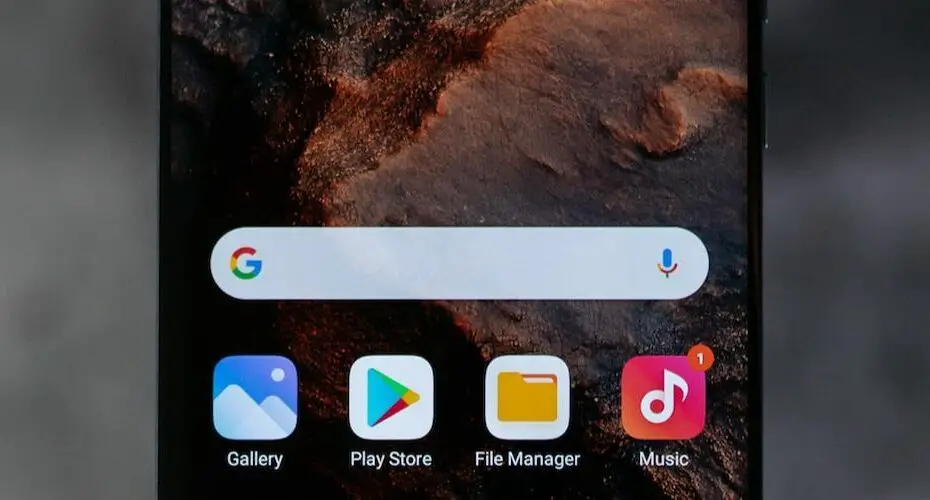Some singers put their mouth on the microphone to sing because the sound waves travel better through the air when they are in contact with the microphone. When the waves hit the microphone, they are increased in amplitude, making them louder. Some singers also put their mouth on the microphone because it makes it easier for them to control the sound that comes out. Other singers do it because it looks cool.
You should know this
Some singers put their mouth on the microphone to make sound.

Why Do Singers Press Their Lips on the Mic
Most singers press their lips on the mic to improve their vocal signal-to-noise ratio. This means that the voice will be more easily heard over the background noise. When singers sing directly into a microphone, the voice will be more easily heard over the surrounding noise.

What Does Eating the Mic Mean
Eating the mic is an old tradition in the music industry where singers hold their microphones against their lips to get a louder sound. This became popular because back in the day, singers had to use their entire voice to be heard. However, many performers today still do this on stage.
Eating the mic can be a hindrance to a performer’s ability to sound their best. It can also be distracting to the audience. Additionally, it can be difficult to project sound in a clear manner when doing this. All of these factors make eating the mic a less than ideal technique.
Nonetheless, many singers continue to do it because it’s a habit that’s been ingrained in them. It’s important for performers to be aware of their surroundings and the way their sound is being projected. If they can break the habit of eating the mic, they’ll be in a better position to sound their best.

How Far Should You Hold a Microphone Away From Your Mouth
microphone distance
When it comes to microphone distance, it is important to stay away from breathing noise. Too close to the microphone can produce unwanted breathing noise, which can be distracting and even disruptive to your voice. It is best to hold the microphone element about 1-3 inches away from your mouth, with the front of the microphone pointed towards your mouth.

What Is the Proper Way to Hold a Microphone
The best way to hold a microphone when speaking is at a distance of 2-10 inches from the mouth and at a 45-degree angle downward. Aim the capsule (front) f the microphone at the mouth and hold the microphone in the middle. For comfort, keep a medium grip, flexible wrist, and elbow down.

What Does the Circle Thing in Front of the Mic Do
-
A pop filter, pop shield or pop screen is a noise protection filter for microphones.
-
It serves to reduce or eliminate popping sounds caused by the mechanical impact of fast-moving air on the microphone from plosives during recorded speech and singing.
-
Pop filters are typically used in a recording studio.
-
They are usually placed in front of the microphone.
-
This reduces or eliminates the popping sounds that can occur when air moves quickly around the microphone.
-
Pop screens are also sometimes used.
-
They are placed in front of the pop filter.
-
This helps to protect the microphone from damage caused by popping sounds.

Do Singers Bring Their Own Mic
-
Singers often bring their own mic to gigs because they want to ensure that they get the best sound possible.
-
It is important to have a good mic if you want to sound good onstage.
-
If you don’t have your own mic, you may have to use the PA system’s mic.
-
It is important to know how to use your mic, so you can get the best sound possible.
-
If you don’t have your own mic, you may have to use a borrowed mic.
-
It is important to be careful with borrowed mics, as they may not be treated well and may not sound as good as your own mic.
-
Always make sure to bring your own mic to gigs so you can get the best sound possible.

Do Microphones Change Your Voice
Microphones change the sound of your voice in a few ways. The first way microphones change the sound of your voice is by how accurately they capture sound. Some microphones will capture sound more accurately than others, which will result in a more accurate portrayal of your voice in recordings. Additionally, how you hear your own voice is different from how your voice actually sounds, which can also affect the sound of your recordings. For example, if you have a high-pitched voice, a microphone that captures high frequencies will result in your recordings having a high-pitched sound. This can be problematic if you want your recordings to have a more neutral sound, as high-frequency recordings can be more difficult to mix with other sounds.
Another way microphones change the sound of your voice is by how they alter the sound of your voice. For example, if a microphone is placed close to your mouth, it will capture sound more accurately than if the microphone is placed farther away from your mouth. However, this closer proximity to the microphone will also result in the microphone capturing more sound, including sounds that are harmful to your voice. For example, if a microphone is placed close to your mouth, it will capture the sound of your saliva and other microbes that are in your mouth. This can result in your recordings having a sour or unpleasant smell. Additionally, if a microphone is placed too close to your mouth, it will also capture the vibrations of your voice, which can result in distortions in your recordings.
Microphones also alter the sound of your voice by how they mix with other sounds. For example, if you are recording a voiceover for a video, the microphone will mix with the sound of the video camera to produce the final recording. This can result in the voiceover being too loud or too soft. Additionally, the microphone will also alter the sound of the other sounds in the recording, which can result in the voiceover being difficult to understand.

Do Microphones Make Singers Sound Better
Microphones can make your voice sound better because certain aspects of your recorded voice, such as the prominence of specific frequencies, tone, color, and overall clarity can be improved by choosing the right microphone. For example, a cardioid microphone will capture sound in a frontal direction, which can help to emphasize lower frequencies and make your voice sound more powerful. Additionally, a condenser microphone will capture sound more accurately and will generally produce a higher-quality recording, as opposed to a dynamic microphone, which will produce a more lively sound. However, there are a variety of other factors to consider when choosing a microphone, such as its price and the type of sound it is best suited for. So, while a microphone can definitely improve the quality of your voice recording, it is important to choose one that will suit your specific needs.

What Microphone Do Most Singers Use
The Shure Beta 58A is a dynamic microphone that is used by many singers because it is the industry standard. This microphone is very popular because it is affordable and has a good sound quality.
How Do You Amplify Singing
-
Get a vocal/speech microphone.
-
Connect the microphone to the active speaker with a cable.
-
Turn on the active speaker and the microphone.
-
Speak into the microphone.
-
Listen to the output of the microphone.
-
If you want to amplify your vocals, increase the volume on the active speaker.
-
If you want to reduce the volume of your vocals, decrease the volume on the active speaker.
Closing words
Some singers put their mouth on the microphone to sing because the sound waves travel better through the air when they are in contact with the microphone. When the waves hit the microphone, they are increased in amplitude, making them louder. Some singers also put their mouth on the microphone because it makes it easier for them to control the sound that comes out. Other singers do it because it looks cool.

